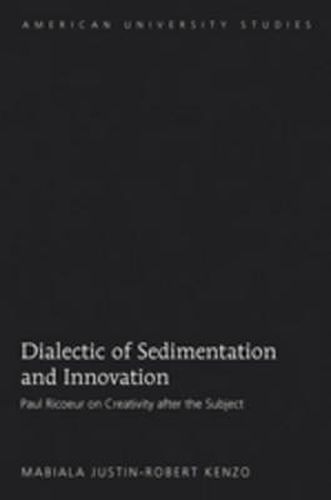Readings Newsletter
Become a Readings Member to make your shopping experience even easier.
Sign in or sign up for free!
You’re not far away from qualifying for FREE standard shipping within Australia
You’ve qualified for FREE standard shipping within Australia
The cart is loading…






One of the most important developments in the episteme of our time is the recognition that all being and all knowing are socially conditioned. This recognition raises the question of subjective creativity: Is creativity or innovation possible? What is the locus of creativity? Is it the subject or the structure of the structures of being of which the subject is part? Any notion of creativity that takes seriously the condition of being is therefore bound to deal with the perennial issue of freedom and determinism. Dialectic of Sedimentation and Innovation examines the contribution of Paul Ricoeur to this question for the purpose of theological consumption. Ricoeur’s philosophical reconstruction of the subject as self creates a space midway between the modern self-positing subject and the postmodern deconstructed subject where reason rules but does not tyrannize. It is from this space that he proposes a view of humanity that argues that to be human is to be homo voluntas, homo lingua, and homo capax. Dialectic of Sedimentation and Innovation seeks to theologically appropriate these notions for Africa’s quest for a new creative identity.
$9.00 standard shipping within Australia
FREE standard shipping within Australia for orders over $100.00
Express & International shipping calculated at checkout
One of the most important developments in the episteme of our time is the recognition that all being and all knowing are socially conditioned. This recognition raises the question of subjective creativity: Is creativity or innovation possible? What is the locus of creativity? Is it the subject or the structure of the structures of being of which the subject is part? Any notion of creativity that takes seriously the condition of being is therefore bound to deal with the perennial issue of freedom and determinism. Dialectic of Sedimentation and Innovation examines the contribution of Paul Ricoeur to this question for the purpose of theological consumption. Ricoeur’s philosophical reconstruction of the subject as self creates a space midway between the modern self-positing subject and the postmodern deconstructed subject where reason rules but does not tyrannize. It is from this space that he proposes a view of humanity that argues that to be human is to be homo voluntas, homo lingua, and homo capax. Dialectic of Sedimentation and Innovation seeks to theologically appropriate these notions for Africa’s quest for a new creative identity.